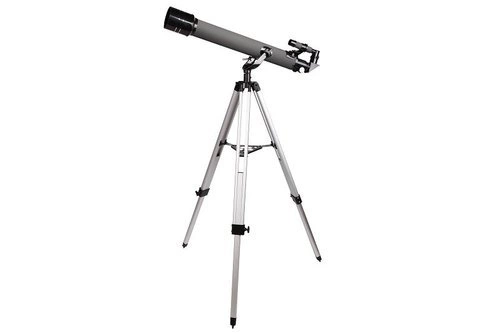Astronomy for beginners
Astronomy is a very interesting activity that attracts more and more amateurs every year. Astronomical events involving the passage of a comet or a meteor shower are always of great interest. Sky observation has even become trendy. It is also a good opportunity to socialize and make new friends. However, even very novice astro amateurs are well aware that they will not see much without the appropriate equipment. Equally important is knowledge, without which it is impossible to make more advanced observations. Astronomy for beginners aims to explain to you how to conduct sky observations step by step. We will suggest how to prepare for them and how to get started in the general sense.
Astronomy for beginners - how to start this adventure?
For astronomical observations you need to be properly prepared, but it should be done calmly. You don't have to know everything right away, or buy super expensive equipment. It is better to start with simpler observations and take up more difficult subjects one by one. If you immediately throw yourself in at the deep end, it is very likely that you will face failure. Without adequate knowledge, you will not be able to enjoy astronomy, because you will probably not even be able to find an object that requires greater experience. Distant galaxies are difficult to find in the dark, so to begin with it is better to choose the objects of our solar system.
Observing the Moon and planets for beginners
Begin with those elements of the cosmos, which are easy to find, but getting a closer look at their details already requires practice and knowledge. The Moon, Mars or Saturn are the brightest objects in the sky, and figuring out where they are located is not very difficult. You will certainly find the Moon quickly through a telescope or even binoculars, but capturing a sharp image may not be so easy after all. Observing such large and bright objects of our solar system is of course a lot of fun, but it is also good for practice. You will be able to test different telescope settings, in different environmental conditions and with additional accessories.
You can also observe the sky at different times of the night and year, and see how its configuration changes. This is really the most important thing in astronomy - as much practice as possible, that is, observation, observation and more observation. That's what astronomy is all about, and it's through practice that you will be able to progress in it. Surely this will be confirmed by any professional who can also give you answers to your most burning questions.

How to learn astronomy?
People who are just starting out in their new hobby certainly have a lot of questions and doubts. Their questions are always best answered by someone who deals with the subject professionally, and this case is no different. It is certainly worth asking a specialist to explain all the basic issues to you in an accessible and non-expert manner. He can give you a lot of interesting information and point out various aspects related to astronomy in practice, some of which you will not read about in the professional literature. They are the result of knowledge and experience that is gained only after spending many hours in the night sky.
You can seek out places like observatories or astronomy clubs. They are also staffed by professionals who are aware of how difficult astronomy is for beginners. They will certainly explain to you how to conduct sky observations step by step.
Explore sky atlas and professional literature
Observing the sky is certainly a unique experience, but before it happens, you need to get started with that less interesting part of astronomy - the professional literature. You will find it in the category "Astronomy for beginners" and probably many titles will revolve around this very concept. The books contain not only the basics of the field of science that is astronomy and useful knowledge, but also numerous photos, colorful illustrations and infographics. You will also find in them answers to your questions, many tips and advice.
Books and guides for beginner astronomer
Every astronomy lover should own a variety of books about the sky and stars, because it is impossible to include everything in one text. Each book can cover different aspects related to astronomical observations. If you choose a book describing the basics of astronomy, you are sure to find information on how to find the planets in the sky. You will look at the migration of the planets in the sky, and you will also find advice that will help you choose a telescope suitable for beginners. Books for amateurs describe sky observation step by step in an accessible way.
If astronomy for beginners is no longer enough for you and you feel that you are ready for more advanced knowledge, then you will be able to start choosing books that explain more difficult issues. Written in a more scientific manner and in professional language. If you started just with them, you would probably quickly give up on your new hobby. There would be problems with understanding the professional knowledge they contain. This very often leads to frustration and quitting a new topic.
Of course, theoretical knowledge is only one of the elements you need to possess to start taking your first steps as a star observer. Although it provides valuable tips, it is not able to make you learn how to observe the sky. Only practice, which requires the right equipment, can make that happen.
What do you need to have to conduct sky observations?
Books will tell you how to observe the sky and astronomical objects, but you will not be able to start developing your interests without an astronomical telescope. If you are just taking your first steps in astronomy, you do not need very professional equipment, but good quality is important. The most useful for you will be a refractor, which is a refracting telescope. This is a good piece of equipment to start with, because it is quite easy to use and does not require professional knowledge. You don't need to set it up and look for optimal parameters when observing the sky. You basically just need to take it out and you can start enjoying the stars.
What equipment should a beginner astronomer have?
Astronomy for beginners is based on refracting telescopes also because they allow observation of objects in different conditions. We are talking about the planets, the Moon and other objects of our solar system, and therefore the brightest, largest and relatively close to us stars. With a refractor it is possible to observe stars even in a city where the night sky is polluted by artificial light.
OPTICON Space Traveler telescope is one of the most interesting choices to start with
Telescope parameters for beginners
Each refractor features different parameters, on which the quality of your observations depends, of course. The most important thing about it is the optical system, that is, the lenses and eyepieces, which determine the magnification, brightness and sharpness of the image that can be obtained. The latter two parameters are the most important. On them depends how much detail of a given astronomical object you will be able to see.
The larger the diameter of the lens, the more light it can capture and the brighter the image. However, with the diameter, the dimensions of the telescope also increase, which makes it a little less handy and convenient to carry. The optimal solution is to choose a telescope with a diameter of 80-110 mm, which already allows you to make interesting observations of the sky, while it can still be easily transported or carried.
Magnification is relevant, but it is not the most important parameter in a telescope. Much more important is the field of view, which decreases with increasing magnification. The higher the magnification, the less clear the image. So equip yourself with a set of eyepieces with a wide field of view, which also have different magnification values.
Observe the night sky like a professional
Sky observation is a hobby that requires commitment and perseverance - and so is astronomy for beginners. Don't count on it being easy. In the beginning it is the most difficult, because then you encounter many obstacles that you do not yet know how to deal with. In astronomy, environmental conditions are also often unfavorable. Your plans can be spoiled by overcast skies or even heavy air pollution. You have to be prepared for the fact that you won't always be able to see an object, which is why perseverance and resilience in the face of failure count.

Planning nighttime observations, choose places with low light pollution
How challenging is astronomy for beginners?
If you are really serious about astronomy, you will also have to reckon with sleepless nights and the need to search for favorable conditions for observation. You will often have to look for an area that is not built up, and it is also important to position yourself under the right part of the sky. A night spent under the stars is certainly a unique experience, but if it takes place in autumn and winter, you need to prepare accordingly. Warm socks, hats and thermal underwear are a must have. So is a thermos of hot tea or coffee.
In addition to equipment, good humor and a positive attitude, you will also need to bring along an atlas of the sky or simply a printed map with a piece of it. Apps are also available, but in their case you should make sure that they work online. With a map, it will be easier for you to find a particular object. You can also take as a signpost the easiest to find elements in the night sky. What does this involve? For example, you find the Great Carriage, and then look for nearby stars, among which should be the one you care about.
The best observations are made under completely dark skies, but you will also need some kind of light source to be able to at least look at the map and not get scalded while pouring coffee. However, you can't take an ordinary flashlight with you. Choose an LED torcht with a red light, or use a red filter on your regular torch.
Astronomy for beginners - key points
Conducting independent astronomical observations will definitely require you to have a willingness to learn, adequate preparation and perseverance. The beginnings are actually the hardest, so don't jump into the deep end right away, because then it is very easy to get discouraged. Start slowly, with the easiest topics, and systematically immerse into more and more difficult areas. Also, don't be ashamed to ask for help and accept advice from people who have already done it. Their experience will be invaluable to you, as it will allow you to avoid many of the mistakes and obstacles that other novice astro-amateurs have encountered.
Check out similar entries:




